
By Jae-Ha Kim
Teen Vogue
December 12, 2023
What a year for great K-dramas. With so many choices, it was difficult leaving out some of my favorites from this best K-dramas list. Ji Chang-wook was magnificent in his role as an undercover cop in the gritty The Worst of Evil. Bae Suzy followed up last year’s superb Anna to play a fallen K-pop idol in Doona! And Mask Girl — which used beauty as a metaphor for happiness, or lack thereof — maintained a unique sense of storytelling that offset the show’s brutality. While they didn’t make my top list, they are all must-watch shows.
As for my top selections, I chose them because each is binge-worthy and features superb acting, well developed storylines that inform and celebrate, and explorations of real-life issues that may be specific to South Korea, but also share universal relevance.
Below, check out the 13 best K-dramas of 2023 that you’ll want to dive into.
Moving
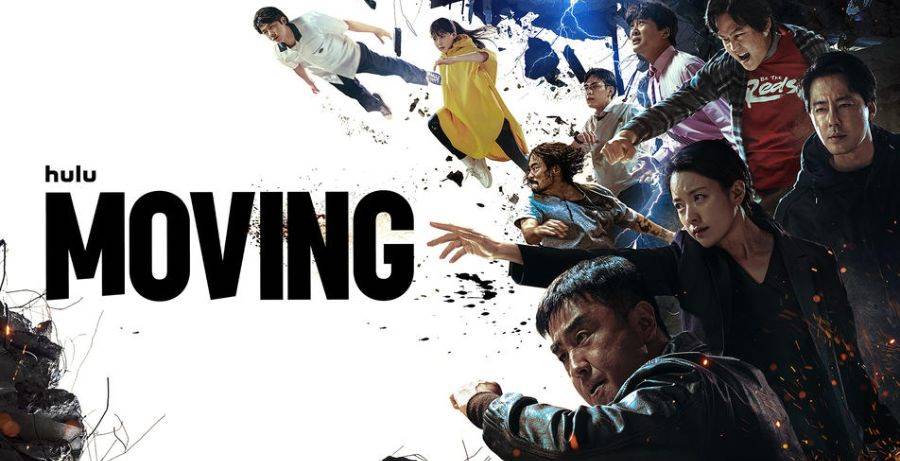
This adaptation of Kang Full’s webtoon became Disney+ and Hulu’s most-watched Korean series ever within seven days of its release. A spectacular superhero show with an all-star Korean cast (Jo In-sung, Han Hyo-joo, Ryu Seung-ryong), Moving focuses on a group of retired spies and their children, who all possess powers that the government would like to control and utilize. Some of them have Thor-level strength, while others can fly. There are also those who have the ability to regenerate after being beaten nearly to death. Left in less capable hands, the K-drama could’ve been little more than a graphically violent shockfest. But Kang — who also wrote the screenplay — deftly tells each character’s backstory. Moving also does an admirable job of including fictionalized versions of real-life events that drive home how the country’s most powerless citizens were sacrificed to expand South Korea’s economic growth. (Hulu)
Queenmaker
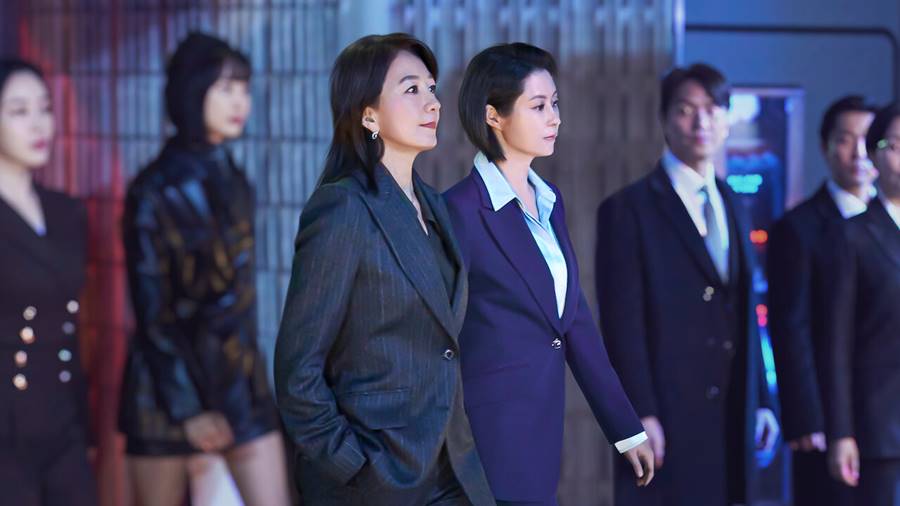
A superb female-centric series led by women in their 40s and 50s, Queenmaker is nail-bitingly good. This political thriller is full of twists and turns as two foes unite to take down a corrupt chaebol family that will stop at nothing to protect their familial and financial interests. Sexual assault, a take on “nut rage,” and nepo babies are all incorporated into the storylines, which keep viewers wondering which direction this K-drama is headed next. The series protagonist – played by the always fantastic Kim Hee-ae – handles greed, power, and justice with aplomb. She remains loyal to her boss, even when she’s written off as little more than a subservient dog. But once she is discarded, she kicks into revenge mode, using all her knowledge to take down the hand that used to feed her. The one weak story arc revolves around adoption, which is used as little more than a sympathy ploy to explain away one character’s grossly abusive anger-management issues. (Netflix)
The Good Bad Mother
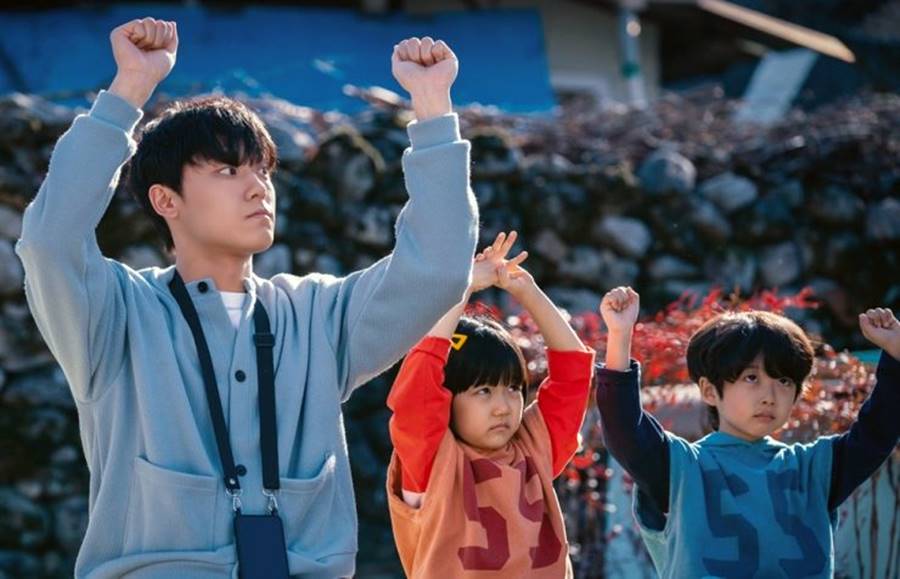
Like Reply 1988, Our Blues, and My Liberation Notes, The Good Bad Mother is a slice-of-life series filled with nosy characters who are overly interested in each other’s business. They support and talk smack about each other and their children in a way that is annoyingly familial. But if someone from outside their rural community attempts to do the same, hell hath no fury like a neighbor scorned. Ra Mi-ran and Lee Do-hyun are both superb playing mother and son, respectively. Their love for each other is tinged with resentment that’s a byproduct of the expectations they have for one another. Through it all, this K-drama illustrates the mother’s strength in giving her child the life she believes he deserves, while also showcasing the burden placed on the son who didn’t have the freedom to have the normal childhood he deserved. (Netflix)
Tale of the Nine Tailed 1938
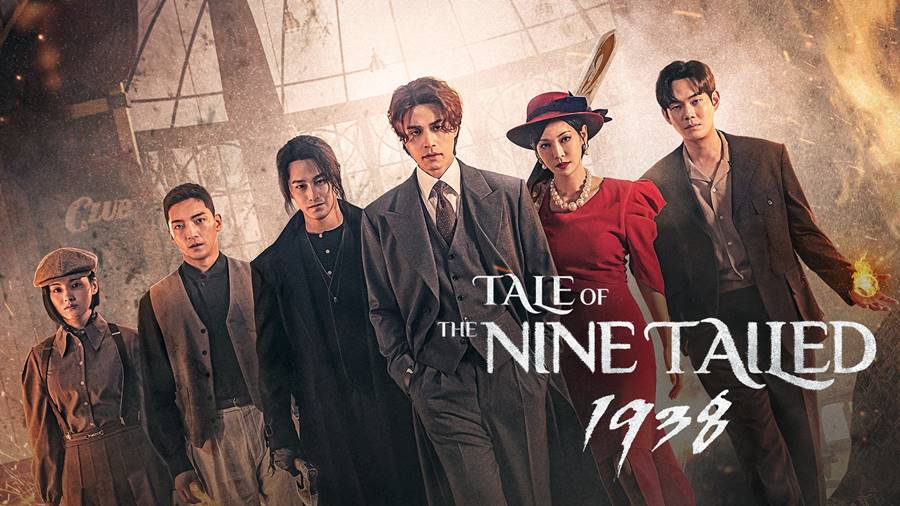
The most frightening and brutal demons in this K-drama aren’t the zombie-esque and supernatural creatures, but the Japanese overlords. And 1938 isn’t subtle about the demonization of Imperial Japan, which had colonized Korea during this period. In this second swashbuckling season, former mountain god Yeon (Lee Dong-wook) is sent back to the past to recover artifacts that’ll have an impact on the future. The best parts of this show, though, focus on Yeon and his half brother Rang (Kim Bum). A villian for much of the first season, Rang gets his redemption arc with a fleshed out back story that almost makes you forget the evil he’s capable of. There is a feisty love triangle between Yeon and his childhood friends that is often over-the-top humorous, thanks to Kim So-yeon chewing up the scenery. (Prime Video)
The Glory Part 2
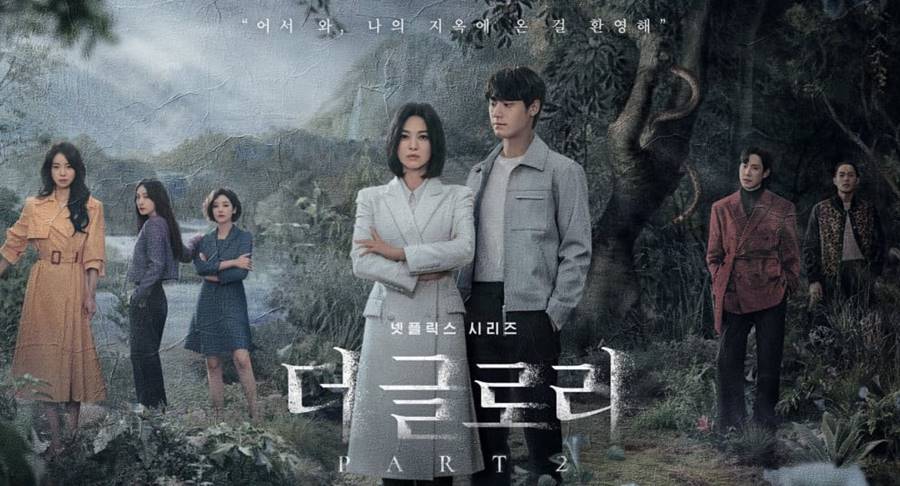
Like the first half of The Glory, the final eight episodes of this revenge series center on a thirtysomething teacher who had been severely bullied in high school. Actually, bullied is too gentle of a word to describe what was done to Dong-eun by a group of sadistic “cool” rich kids. The girls used a hot curling iron to burn her daily, as if she was cattle that needed to be branded. The boys sexually assaulted and beat her. She was theirs to do with as they wished, and no one dared to stop them – not their parents, teachers, or police, who all wrote off these criminal acts as school friends doing a bit of roughhousing. There is just as much stomach-churning violence here as in 2022’s first part. But this time around, Dong-eun (Song Hye-kyo) gets to eke out sweet retribution. Viewers are left with a sobering sense that she will never be free of her painful past, because some scars never fade. (Netflix)
Bloodhounds
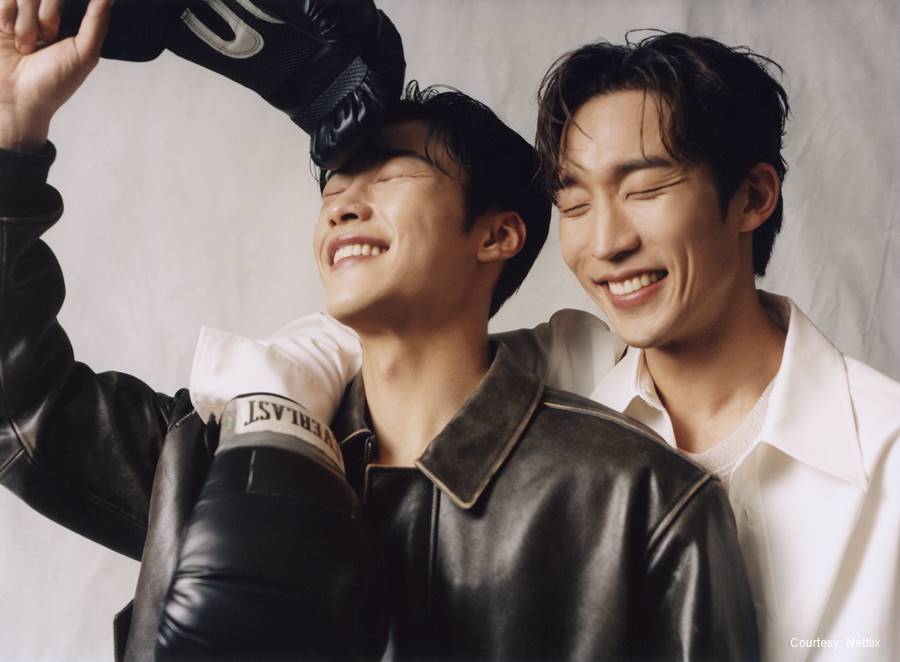
This K-drama offers sweet bromance between two boxers, while also offering a brutal take on morality. There is a lot of violence in this show, which revolves around a money lender who thinks nothing of tricking desperate small business owners into taking out loans with exorbitantly high (and illegal) interest rates. When they can’t meet their deadline to pay back the money, the violence escalates and their property is seized. The best part of this show is the friendship between the boxers (Woo Do-hwan, Lee Sang-yi), whose strong desire to help the downtrodden leads to lots of fights where their four fists destroy dozens of bad guys. Because South Korea places heavy restrictions on civilians owning guns, there’s very little gunplay in most K-dramas. This is reflected in Bloodhounds, where the battles are of the hand-to-hand kind, along with some brutal stabbings and slashings … and arrow shots. Yes, archery comes into play in the finale and it’s awesome. (Netflix)
My Dearest
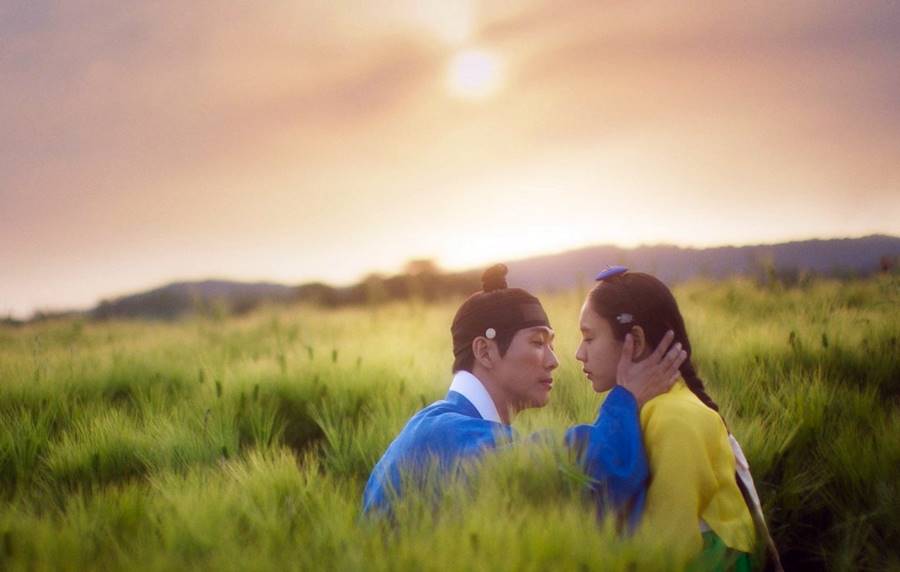
Split into two parts, this 21-episode sageuk – or historical drama – showcases the amazing chemistry between lead actors Namkoong Min and Ahn Eun-jin. Set during the Qing invasion of Joseon, this K-drama is as much of a story of resilience as it is about love. Class differences and misunderstandings will force our protagonists to leave each other repeatedly. But like a boomerang, they always find each other again. There is plenty of political subterfuge, with an ineffectual and paranoid king whose desire to survive supersedes his love for his own son (the Crown Prince). And there are “good men” whose love for the women in their lives are conditional on their chastity. Gil-chae (Ahn), who spends the earliest episodes besotted over a man she can’t have, isn’t a character I warmed up to initially. But her emotional growth and will to survive are inspirational. (KOCOWA)
Doctor Cha

Doctor Cha is a reminder that there is a breaking point, even for the most good-natured mom. Even though Jeong-suk (Uhm Jung-hwa) got better grades in medical school than her future husband, she quit working as a doctor to become a stay-at-home mom to their children. Did she really want to? Probably not. But her husband wanted her to live an “easier life.” Societal expectations of what she should do also played a role. At home, she takes care of her mother- in-law, makes all the meals, does all the cleaning, and is basically treated as the family’s congenial doormat. When she finally grows a spine and threatens her husband with divorce, he scoffs, telling her that since she contributes nothing financially to the marriage, she shouldn’t expect him to give her a livable divorce settlement that he earned. It’s after she returns to work that she is viewed as more than just somebody’s mother or wife. Had she not realized the value of her own worth, she could’ve become a tragic victim of patriarchy like the protagonist in the breakthrough 2016 novel Kim Ji-young, Born 1982. (Netflix)
D.P. Season 2
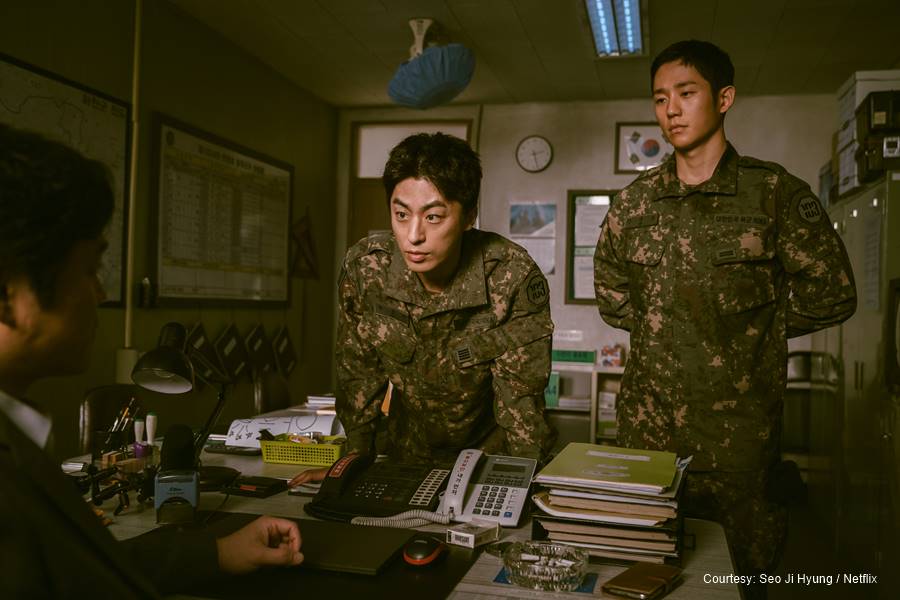
What D.P. does so well is tell the important and uncomfortable stories that no one wants to believe are true. When soldiers are regularly humiliated, degraded, and tortured, what right does anyone have to tell the victims that they must return to their abusers? This second season continues to maintain the momentum that its predecessor set up. The premise of the show sounds simple enough: the Military Police’s Deserter Pursuit unit must bring back soldiers who’ve gone AWOL. D.P. Joon-ho (Jung Hae-in) is morally conflicted about having to return victims who’ve clearly suffered from severe military bullying, including a gay soldier who is incessantly abused and forced to perform sexual acts on his superiors. (The latter is implied, but not depicted.) Based on Kim Bo-tong’s webtoon D.P. Dog’s Day, this K-drama depicts an unpleasant reality, leaving viewers pondering what can be done to stop this abuse. (Netflix)
Twinkling Watermelon

If you could go back in time and make your parents’ lives better, would you? Eun-gyeol (Ryeoun) doesn’t exactly make this choice. Rather, he’s mysteriously thrust into a bygone era where he meets his high school-age parents. There, he hatches a plan to protect his teenage father (Choi Hyun-wook) from an accident that will result in his becoming deaf. K-dramas are quite prolific when it comes to dealing with time travel fantasies. While Twinkling Watermelon doesn’t offer a wholly new concept, the intergenerational story arcs are well crafted and make viewers laugh, as well as tear up. As Eun-gyeol ponders whether his interference will help his family – or result in his never being born – we cheer him on as he processes what it means to be a family, warts and all. (Viki)
Daily Dose of Sunshine
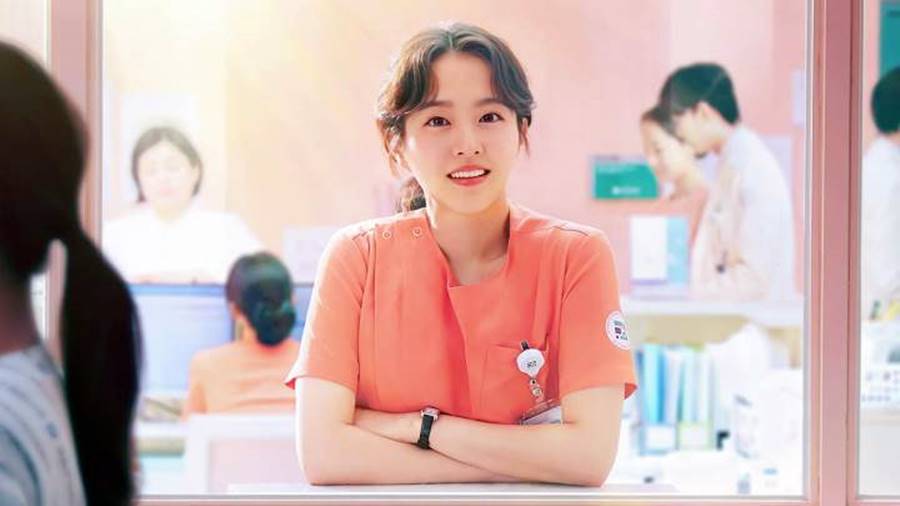
Based on a novel by former psychiatric nurse Lee Ra-ha and helmed by All of Us Are Dead director Lee Jae-gyu, this series tackles the very real world problems of how unkind society can be to people suffering from mental health issues. Da-eun (Park Bo-young) is a new nurse in the psychiatric ward who is initially disliked for spending too much time listening to what patients have to say. After a tragic incident leaves her questioning her own abilities, Da-eun goes on a debilitating downward spiral that is written off as something that can be cured by a good meal or a long nap. When she has her epiphany – “All of us are standing on the border between normal and abnormal” – we feel as if she’s addressing us as much as herself. Just about every character in Daily Dose of Sunshine is flawed and somewhat broken. But their resilience is a reminder that it’s okay to not be okay. (Netflix)
Crash Course in Romance

An elite hagwon math tutor – who’s so popular that mothers lineup at all hours to get their kids seats at his lectures – and a former national handball player who gave up her competitive years to care for her niece, meet cute and, of course, dislike each other immensely. And though we all know that Haeng-sun (Jeon Do-yeon) and Chi-yeol (Jung Kyung-ho) will fall in love, the series takes its time in letting these characters get to know each other, quirks and all. But romance is the least interesting aspect of this K-drama, which also focuses on teenage friendships and the level of academic stress these children face daily (at school and from their parents). These story arcs ring of truth, evoking memories of how intense everything can feel when you’re a teenager. (Netflix)
Divorce Attorney Shin
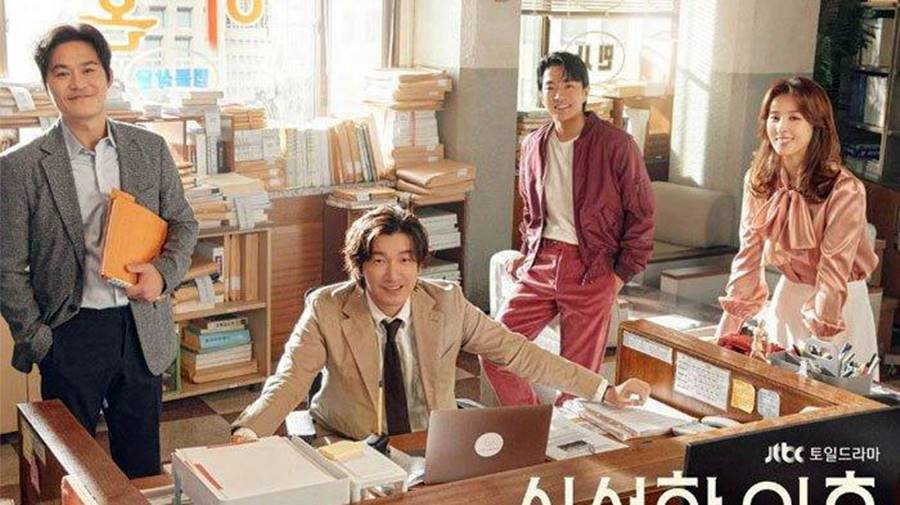
A trio of middle-aged men are at the epicenter of this show, which focuses on former classical pianist-turned-divorce attorney Shin Sung-han (Cho Seung-woo). His career change may seem random, but it was a calculated choice he made after his younger sister’s death. She is survived by a young child and a spineless ex-husband, who listens to his new wife’s orders to prevent the boy from having any contact with his beloved uncle. Shin’s legal expertise will be crucial in the child’s life, but that’s just one of the cases he tackles. By the end of the series, he’ll have tackled cases most lawyers view as unwinnable – like the radio personality who wants to maintain custody of her son, but has a sex tape circulating that’s being used to prove she’s an unfit mother. As meticulous as our divorce attorney is at work, he’s a bit of a mess at home. Thankfully, his friends – who also have kinda sorta weirdo personalities – give him the moral support he needs, whether he wants it or not. (Netflix)
© 2023 JAE-HA KIM | All Rights Reserved
2 thoughts on “The Best K-Dramas of 2023, From “The Glory 2” to “Queenmaker””